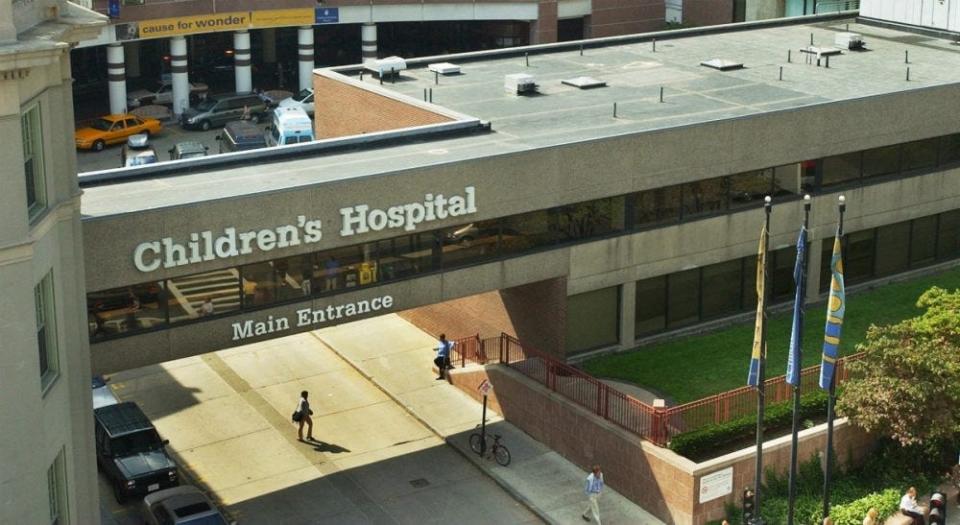Boston Children’s Hospital will no longer perform two types of intersex surgery on children
This story was published in partnership with The 19th, a nonprofit, nonpartisan newsroom reporting on gender, politics and policy.
A top pediatric hospital has agreed to stop performing certain types of genital surgeries on intersex children if they are too young to meaningfully consent – a decision that activists say could be a watershed moment for intersex rights.
A spokesperson for Boston Children’s Hospital told The 19th that it “will not perform clitoroplasty or vaginoplasty in patients who are too young to participate in a meaningful discussion of the implications of these surgeries, unless anatomical differences threaten the physical health of the child.” The decision came from the hospital’s behavioral health, endocrinology and urology program.
Each year, about 1.7% of people are born intersex, or people with sexual or reproductive anatomy that doesn’t neatly align into a binary of male or female. Some people develop those anatomical traits in adolescence or childhood, while others are born with them.

For decades, the standard medical protocol was to use surgery and hormonal therapy to try to change intersex children’s physical appearance. Clitoroplasties, the surgical creation of a clitoris (which can involve reducing its size), and vaginoplasty, which involves constructing a vagina, are two such surgeries. Activists have been protesting these practices for decades, and – though legal worldwide – they have been condemned by the United Nations, Amnesty International and Human Rights Watch.
Boston Children’s decision could reflect a turning point, activists said. It comes on the heels of a similar move by the Ann and Robert H. Lurie Children’s Hospital of Chicago, which announced in July it would suspend such intersex surgeries.
“One hospital was cool, but people might be like, ‘Oh, that’s an anomaly.’ Now that there are two hospitals, people in the community are going to feel more ability to pressure their hospitals to do the same,” said Pidgeon Pagonis, co-founder of the Intersex Justice Project.
Advocates are pushing for similar changes in other major cities, including New York, Seattle, Philadelphia, Los Angeles and Oklahoma City, Pagonis said. Both New York City Human Rights Commissioner Carmelyn Malalis and its former health commissioner Oxiris Barbot have also spoken out against performing intersex surgeries in children.
Still, Boston Children’s change isn’t exhaustive. The hospital has not indicated it will drop other intersex surgeries, including gonadectomies, which constitute the removal of certain reproductive glands, or phalloplasties, which enlarge penises.
“Vaginoplasties and cliteroctomies are very destructive, and it’s very welcome news,” Pagonis said. “But it means there’s still more work to do.”
There are a host of physical consequences to intersex surgeries: loss of sexual sensation, incontinence, fertility problems and pain during intercourse are just a few. And beyond physical consequences, intersex surgeries can have lifelong pyschological impact.
There are cases when surgery can provide benefits – namely, if a child is unable to pass urine, said Sean Saifa Wall, another IJP co-founder. But those aren’t the norm. Broadly, a 2017 report authored by three former U.S. surgeons general noted little benefit to conducting genital surgery on children.
“The level of hypervigilance, of just trauma, the emotional and mental health trauma is lifelong,” Wall said. “We can lessen the potential psychological and physical trauma.”
Wall said he hopes Boston’s shift spurs change, not only from other hospitals, but from insurance companies and lawmakers as well, so that it is not incumbent on activists to pressure their individual medical providers.
Politics: Trump has gutted LGBTQ rights. Could a Biden presidency undo the damage?
In recent years, state lawmakers in California, New York and Connecticut have put forth bills to halt intersex surgeries, though none ended up becoming law.
“We need legislation with teeth,” Wall said. “We need legislation that is actually going to say that these surgeries cannot be done on children unless the medical providers can prove these surgeries are necessary.”
This article originally appeared on USA TODAY: Boston hospital's intersex surgery decision could be watershed moment
